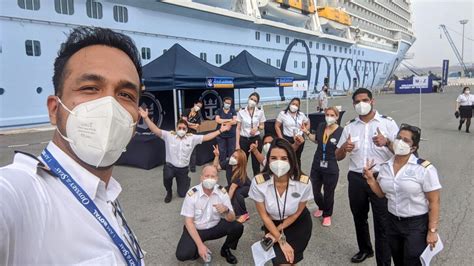
Life in a tropical paradise isn’t always the idyllic postcard image it’s often portrayed to be, according to locals who cite challenges ranging from high costs of living and pervasive insect populations to intense weather events and cultural differences. While the allure of year-round sunshine and pristine beaches is undeniable, residents of tropical locales are increasingly sharing the realities that tourists rarely see, painting a more complex picture of life beyond the vacation brochure.
Many people dream of escaping to a tropical haven, envisioning a life of leisure and relaxation. However, the reality of living in a tropical country often diverges significantly from this idealized perception. Residents across various tropical destinations have come forward to share their experiences, revealing a blend of natural beauty and unexpected hardships. From the Caribbean to Southeast Asia, the consistent message is clear: paradise comes at a price.
One of the most frequently cited drawbacks is the high cost of living, particularly in popular tourist destinations. While the initial appeal might be the lower prices on certain goods and services, factors such as imported goods, inflated housing costs, and utilities can quickly erode any perceived financial advantage. “Groceries are super expensive,” one resident shared, highlighting the disparity between local produce and imported items catering to tourists and expats. This financial strain is exacerbated by lower average wages in many tropical countries compared to developed nations, making it difficult for locals to maintain a comfortable standard of living.
Beyond the economic challenges, the environment itself presents a constant battle. The abundance of lush vegetation and warm temperatures creates a breeding ground for insects and pests. Mosquitoes, sandflies, and other biting insects are not merely a nuisance; they also pose a significant health risk, transmitting diseases like dengue fever, Zika virus, and malaria. Residents often find themselves constantly applying insect repellent, using mosquito nets, and taking other preventative measures to protect themselves and their families. The pervasive presence of insects is a daily reality that newcomers often underestimate.
Extreme weather events are another significant concern for those living in tropical regions. These areas are particularly vulnerable to hurricanes, cyclones, floods, and droughts, which can cause widespread devastation and displacement. The frequency and intensity of these events are projected to increase with climate change, further compounding the risks. Residents must be prepared to cope with these natural disasters, which can disrupt their lives and livelihoods. This includes having emergency supplies, evacuation plans, and adequate insurance coverage. The psychological toll of living under the constant threat of natural disasters can also be considerable.
Cultural differences and potential isolation can also present challenges for expats and immigrants. Adapting to a new culture requires patience, understanding, and a willingness to learn. Language barriers, different social norms, and varying attitudes towards work and life can create friction and misunderstandings. Furthermore, the feeling of being an outsider can lead to social isolation and loneliness, particularly for those who do not make an effort to integrate into the local community.
The allure of a tropical paradise is undeniable, but it is essential to be aware of the realities that lie beneath the surface. By understanding the challenges and preparing accordingly, individuals can make informed decisions about whether or not a tropical lifestyle is right for them. It requires a realistic assessment of one’s financial situation, health concerns, and adaptability to new cultures and environments.
Specific Challenges in Detail
To fully grasp the complexities of life in a tropical country, it is necessary to delve deeper into the specific challenges mentioned by residents.
-
Cost of Living: The cost of living in tropical paradises can be deceptively high. While certain aspects may seem cheaper, such as local produce or services, imported goods, accommodation, and healthcare often come with a hefty price tag. “You have to consider the cost of importing goods. That stuff adds up quickly!” one resident explained. This is particularly true in island nations, where nearly everything must be shipped in. Real estate prices in tourist hotspots are often inflated due to high demand from foreigners, making it difficult for locals to afford housing. Utility costs can also be higher due to the need for air conditioning to combat the heat and humidity.
-
Insect Infestation and Diseases: Tropical climates are ideal breeding grounds for insects, and the constant presence of mosquitoes, sandflies, and other pests can be extremely irritating. More importantly, these insects can transmit dangerous diseases. Dengue fever, Zika virus, chikungunya, and malaria are all common in tropical regions, and residents must take precautions to protect themselves. This includes using insect repellent, wearing protective clothing, and installing mosquito nets. However, these measures are not always effective, and contracting one of these diseases is a constant risk. The cost of healthcare can also be a significant burden, especially for those who do not have adequate insurance.
-
Extreme Weather Conditions: Tropical countries are prone to extreme weather events, such as hurricanes, cyclones, floods, and droughts. These events can cause widespread damage and displacement, disrupting lives and livelihoods. The intensity and frequency of these events are expected to increase due to climate change, making it even more challenging for residents. Preparing for these events requires having emergency supplies, evacuation plans, and adequate insurance coverage. However, even with these preparations, the impact of a major natural disaster can be devastating. “We just had a hurricane rip through. It was terrifying and destroyed so many homes,” a resident recounted. The psychological toll of living under the constant threat of natural disasters can also be significant.
-
Cultural Differences and Isolation: Adapting to a new culture can be challenging, especially if there are significant differences between one’s home culture and the local culture. Language barriers, different social norms, and varying attitudes towards work and life can create friction and misunderstandings. It is essential to be patient, understanding, and willing to learn. However, even with these efforts, the feeling of being an outsider can lead to social isolation and loneliness. “It’s hard to make friends when you don’t speak the language fluently,” one expat admitted. Building relationships with locals can help to overcome this isolation, but it requires effort and a genuine interest in the local culture.
-
Infrastructure Limitations: Compared to developed nations, tropical countries often face limitations in infrastructure, including transportation, communication, and public services. Roads may be poorly maintained, public transportation may be unreliable, and internet access may be slow or limited. Power outages are also common in some areas. These infrastructure limitations can make daily life more challenging and can hinder economic development.
-
Bureaucracy and Corruption: Many tropical countries are characterized by complex bureaucratic processes and corruption, which can make it difficult to do business or access public services. Dealing with government agencies can be time-consuming and frustrating, and bribery is often a common practice. This can create a sense of injustice and can discourage investment.
-
Limited Job Opportunities: While some sectors, such as tourism and hospitality, may offer employment opportunities, overall job availability in tropical countries can be limited, particularly for skilled professionals. Wages are often lower than in developed nations, and competition for jobs can be fierce. This can make it difficult for expats to find meaningful employment and can force locals to seek opportunities abroad.
-
Environmental Concerns: While tropical countries are known for their natural beauty, they also face significant environmental challenges, including deforestation, pollution, and the destruction of coral reefs. These issues can threaten the health of ecosystems and can impact the livelihoods of local communities.
Personal Accounts and Experiences
The most compelling evidence of the realities of life in a tropical country comes from the personal accounts of those who have experienced it firsthand. These stories provide a glimpse into the daily challenges and triumphs of living in paradise.
One expat who moved to Costa Rica shared, “The beauty is undeniable, but the ‘pura vida’ lifestyle comes with its own set of stressors. The bureaucracy here is insane, and getting anything done takes forever. Plus, the bugs! I’ve never seen so many insects in my life.”
A local resident of the Philippines explained, “We love our country, but it’s not always easy. We have to deal with typhoons every year, and the cost of living keeps going up. It’s hard to make ends meet.”
Another expat living in Bali commented, “Bali is magical, but it’s also very different from what I expected. The traffic is terrible, the pollution is bad, and the cultural differences can be challenging. But I wouldn’t trade it for anything.”
These personal accounts highlight the complexities of life in a tropical country. While the natural beauty and the relaxed lifestyle are appealing, it is essential to be aware of the challenges and to be prepared to adapt.
Making an Informed Decision
For those considering a move to a tropical country, it is crucial to do thorough research and to make an informed decision. This includes considering the following factors:
-
Financial Situation: Assess your financial resources and determine whether you can afford the cost of living in your desired location. Consider factors such as housing, healthcare, transportation, and food.
-
Health Concerns: Research the health risks associated with your chosen destination and take necessary precautions. Consult with your doctor about vaccinations and preventative medications.
-
Cultural Adaptability: Consider your ability to adapt to a new culture and learn a new language. Be prepared to embrace different customs and traditions.
-
Job Prospects: Research the job market in your desired location and assess your chances of finding employment.
-
Infrastructure and Services: Investigate the availability of infrastructure and services, such as transportation, communication, and healthcare.
-
Safety and Security: Research the safety and security situation in your chosen destination and take necessary precautions to protect yourself and your property.
By carefully considering these factors, you can make an informed decision about whether or not a tropical lifestyle is right for you. It is also helpful to connect with other expats or locals who can provide insights and advice.
Conclusion
The allure of a tropical paradise is undeniable, but it is essential to be aware of the realities that lie beneath the surface. Life in a tropical country can be challenging, but it can also be rewarding. By understanding the challenges and preparing accordingly, individuals can make informed decisions about whether or not a tropical lifestyle is right for them. It requires a realistic assessment of one’s financial situation, health concerns, and adaptability to new cultures and environments. Only then can one truly appreciate the beauty and the challenges of living in paradise. The “postcards” often fail to capture the full spectrum of life experiences, from mundane daily routines to extreme weather events, thus creating a need for a more balanced perspective. The key to enjoying a tropical lifestyle lies in embracing both the beauty and the challenges that come with it.
Frequently Asked Questions (FAQ)
-
What are the biggest financial challenges of living in a tropical country?
The biggest financial challenges include high costs for imported goods, inflated housing prices in tourist areas, potentially lower average wages compared to developed countries, and unexpected expenses related to healthcare or natural disasters. As one resident pointed out, “Groceries are super expensive,” reflecting the reliance on imported items that inflate prices. Additionally, maintaining a comfortable lifestyle often requires air conditioning, leading to higher utility bills.
-
What health risks should I be aware of when moving to a tropical region?
Common health risks include insect-borne diseases such as dengue fever, Zika virus, malaria, and chikungunya. Residents often must take preventative measures like using insect repellent, mosquito nets, and protective clothing. Additionally, access to quality healthcare can vary, and it’s crucial to have adequate health insurance to cover potential medical expenses.
-
How can I prepare for extreme weather events in a tropical country?
Preparation involves having an emergency supply kit with food, water, and essential supplies, developing an evacuation plan, and securing adequate insurance coverage for your property. Stay informed about weather forecasts and warnings from local authorities, and be prepared to follow evacuation orders if necessary. Building codes in tropical areas may also differ, so ensure your residence is structurally sound and can withstand potential storms.
-
What steps can I take to integrate into a new culture and avoid social isolation?
Learning the local language is crucial for building relationships and understanding the culture. Participate in local events, join community groups, and be open to new experiences. Respect local customs and traditions, and be patient as you navigate cultural differences. Seek out opportunities to connect with both locals and other expats to build a social support network.
-
Are there any specific regions within tropical countries where these challenges are more pronounced?
Challenges related to the cost of living and infrastructure are often more pronounced in popular tourist destinations and island nations, where demand is higher and resources may be limited. Areas prone to frequent natural disasters, such as coastal regions and low-lying areas, face greater risks from hurricanes, cyclones, and floods. Remote or rural areas may have limited access to healthcare and other essential services. Understanding the specific characteristics of your chosen location is crucial for preparing for potential challenges.
-
What are the common infrastructure limitations in tropical countries?
Frequently observed limitations include poorly maintained roads, inconsistent public transportation options, sporadic or limited internet access, and frequent power disruptions. The reliability of these fundamental services can vary considerably, impacting daily routines and possibly hindering economic activities.
-
How does bureaucracy and corruption impact daily life for residents in tropical countries?
Intricate bureaucratic procedures and corruption can complicate the process of conducting business or obtaining essential governmental services. Interaction with state institutions is sometimes time-intensive and disheartening, and instances of bribery could be common. These conditions can generate feelings of inequity and perhaps deter investments.
-
What are the job market prospects and income expectations in tropical nations?
Although specific industries such as tourism and hospitality provide job openings, the entire availability of work in tropical regions could be constrained, specifically for experienced individuals. Wages are usually less than those of richer countries, and the contest for jobs could be intense.
-
What role does climate change play in exacerbating the challenges in tropical countries?
Climate change raises the intensity and frequency of extreme weather events, like hurricanes, droughts, and floods, raising the vulnerability of tropical countries. The rising sea level poses a danger to shoreline populations, and variations in temperature and precipitation have an effect on agriculture and water supplies.
-
What type of insurance coverage is essential for residents in tropical regions?
Apart from common insurance coverage like health and life insurance, residents of tropical areas should think about buying insurance against natural disasters that covers damages brought on by hurricanes, floods, and other climate-related occurrences. Comprehensive house insurance is also crucial.
-
How do the cultural norms and social expectations differ in tropical countries compared to Western nations?
Compared to Western cultures, tropical countries may have more hierarchical social organizations, which place a strong focus on community, family, and respect for elders. Direct communication may not be valued as much as indirect communication, and the pace of life might be slower.
-
What are the primary environmental concerns in tropical regions, and how do they affect local communities?
Deforestation, pollution, and the degradation of coral reefs are major environmental issues. These problems have an effect on regional economies, endanger ecosystems, and lower water quality. Numerous tropical countries prioritize sustainability projects, such as waste reduction and reforestation, to handle these issues.
-
What are the best strategies for dealing with the pervasive presence of insects in tropical climates?
Along with consistently applying insect repellent, using mosquito nets, and donning protective apparel, people may also think about setting up mosquito screens on doors and windows. It’s also important to keep surroundings clean and eliminate any standing water, as these are popular breeding grounds for mosquitoes.
-
How can individuals contribute to sustainable practices and responsible tourism in tropical destinations?
People may lessen their environmental effect by encouraging local companies, conserving water and energy, appropriately disposing of waste, and being mindful of their consumption habits. They may also take part in neighbourhood conservation initiatives and show regard for regional traditions and cultures.
-
What are some of the psychological challenges that expats and immigrants face when adapting to a tropical lifestyle?
Cultural shock, loneliness, homesickness, and difficulty building new social networks are a few of the psychological difficulties. It’s important for people to actively seek out social assistance, preserve connections with their families and friends back home, and have realistic expectations of the adaptation process.
-
What legal considerations should expats be aware of before moving to a tropical country?
Visa requirements, residency regulations, property ownership restrictions, and labour regulations are among the key legal factors. Before relocating, it’s advised to get legal counsel to guarantee compliance with local laws and regulations.
-
How does the availability of education and childcare services compare in tropical countries versus developed nations?
Compared to developed nations, the availability and calibre of education and childcare services in tropical countries may differ. Expatriates should investigate local schools, investigate certification and accreditation processes, and take into account the availability of extracurricular activities and specialized educational options.
-
What are the potential benefits of embracing a simpler, more minimalist lifestyle in a tropical setting?
A minimalist lifestyle may result in increased financial stability, less stress, and the chance to appreciate the natural beauty and cultural richness of the environment. It enables people to concentrate on experiences and relationships rather than material possessions.
-
How can individuals stay connected with their home culture while fully embracing the local culture in a tropical country?
People may keep in touch with their native culture by keeping up relationships with family and friends, participating in internet communities, and attending events that honour their cultural heritage. Keeping a balance between engaging in regional customs and cherishing one’s cultural heritage is essential.
-
What long-term planning considerations are important for retirees considering a move to a tropical paradise?
Long-term financial security, healthcare accessibility, estate planning, and prospective changes in local regulations and infrastructure are all things that retirees should take into account. Before making a choice, it’s best to speak with financial and legal experts.
-
What are the best methods for learning the local language in a tropical country?
Language acquisition can be accelerated by taking formal language courses, conversing with native speakers, watching local media, and using language-learning tools and applications. Immersion in the local culture is essential for enhancing language skills.
-
How can people protect themselves from scams and fraudulent activities that may be prevalent in some tropical tourist destinations?
It is important to conduct research, obtain advice from reliable sources, prevent engaging with strangers who provide unsolicited aid, and carefully consider all financial transactions. It is essential to be cautious and aware of your environment.
-
What are the common misconceptions about life in a tropical country, and how can people develop a more realistic perspective?
Common misconceptions involve expecting a constant “vacation” experience, underestimating the challenges of adaptation, and oversimplifying cultural differences. People may get a more sensible perspective by doing comprehensive research, speaking with local residents and expatriates, and keeping an open mind.
-
How does the slower pace of life in many tropical countries affect work habits and productivity?
The slower tempo of life may need some acclimatization for people used to faster-paced work environments. Embracing flexibility, modifying deadlines, and emphasizing relationship development may boost work satisfaction and productivity in a tropical environment.
-
What are the opportunities for volunteering and giving back to the local community in tropical regions?
There are numerous possibilities for helping the local community, including volunteering with environmental protection organizations, backing community development projects, working with education and healthcare organizations, and taking part in projects that support sustainability and cultural heritage.









